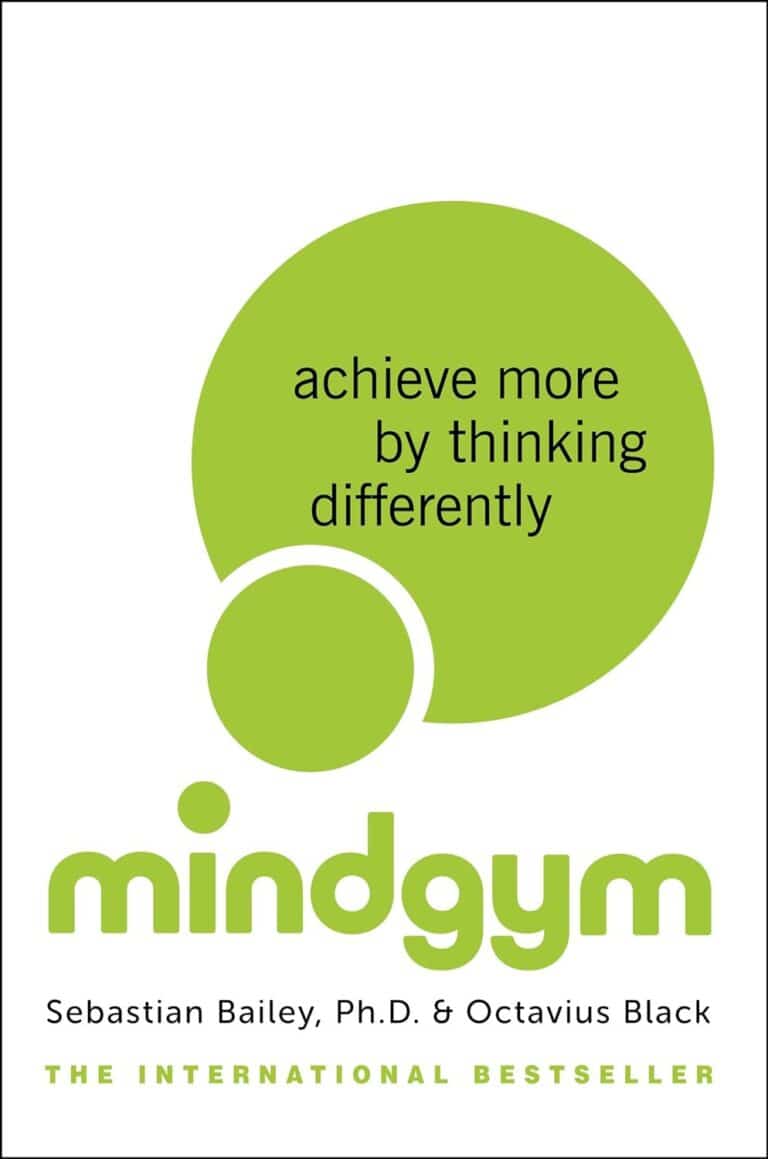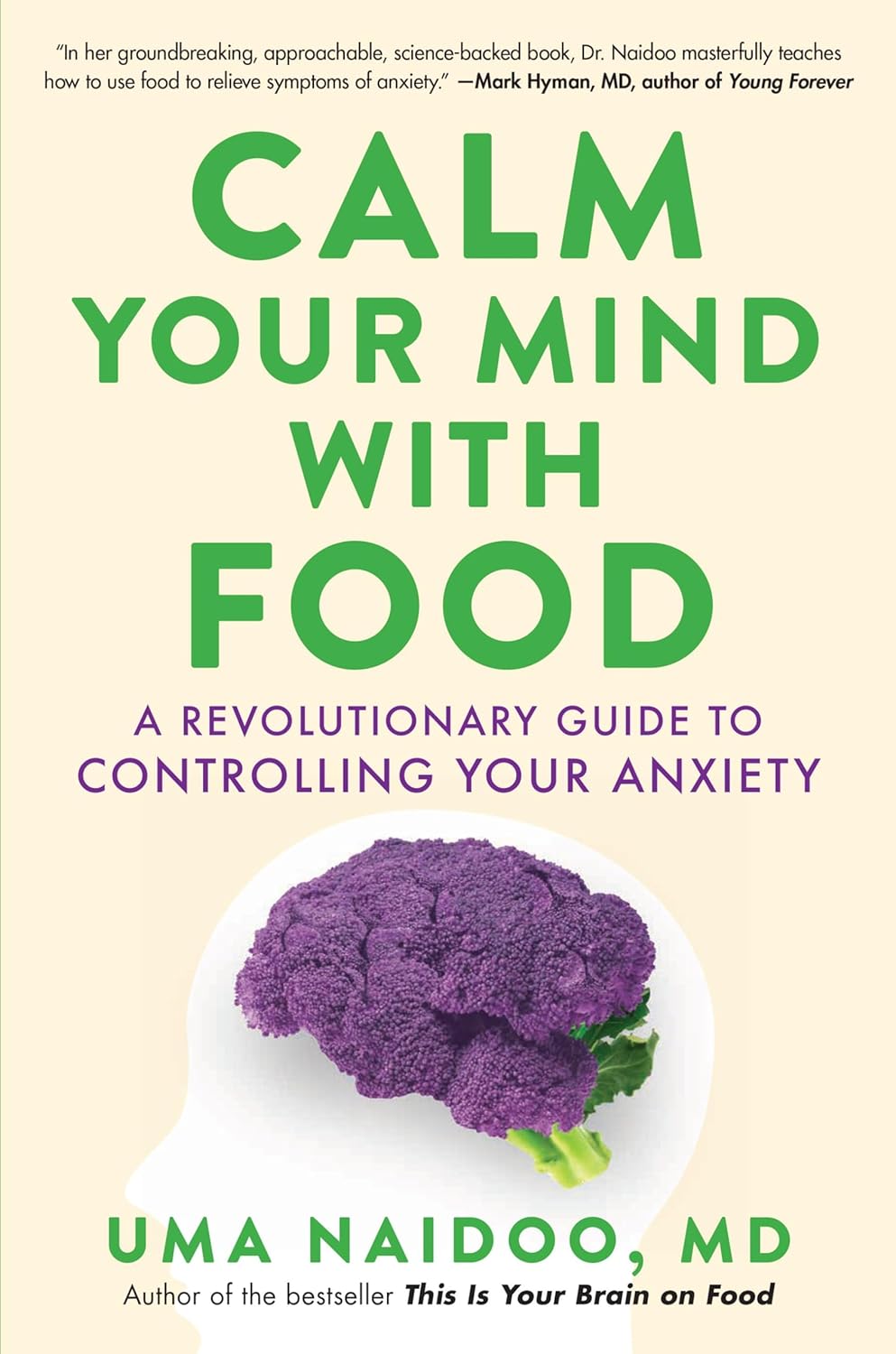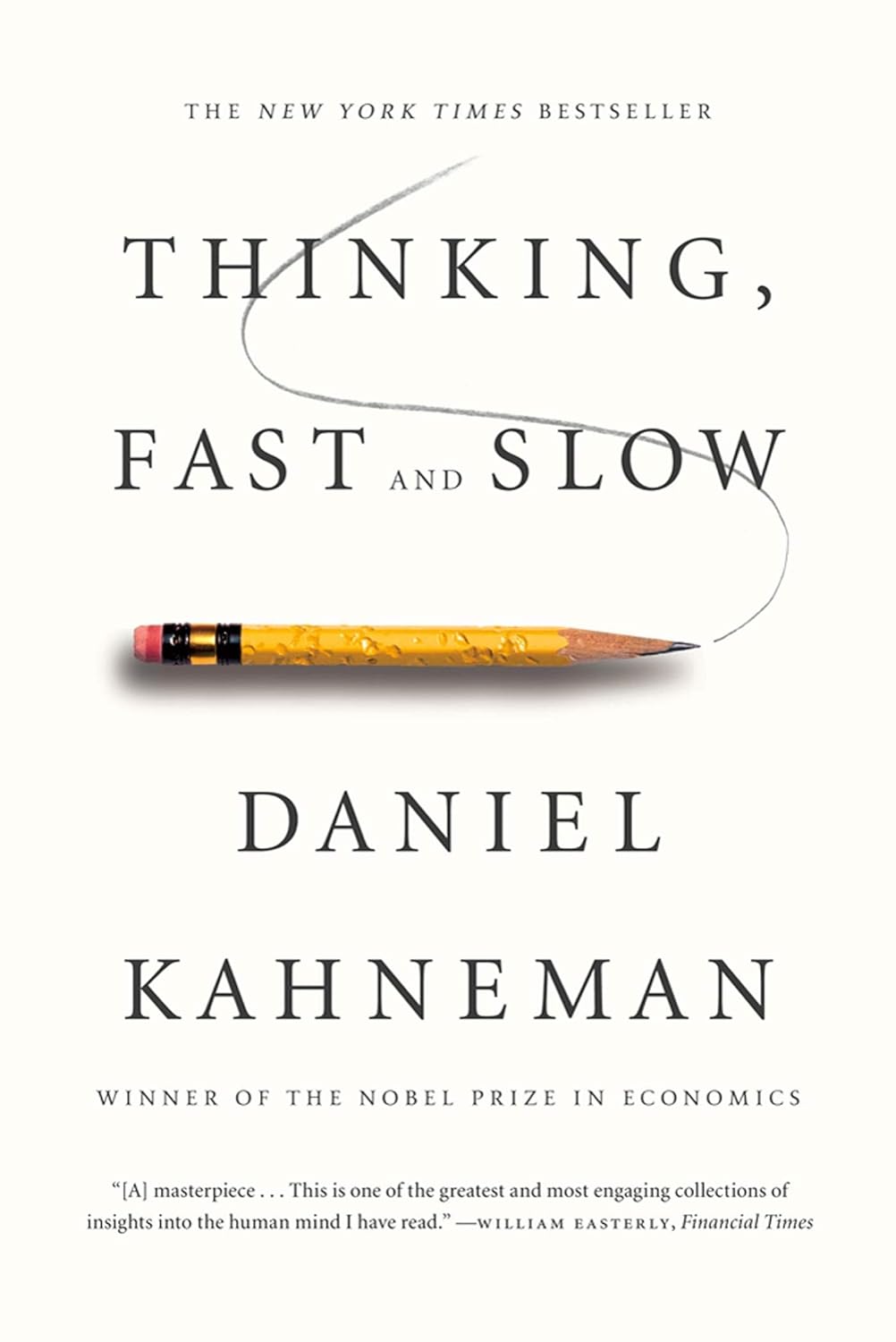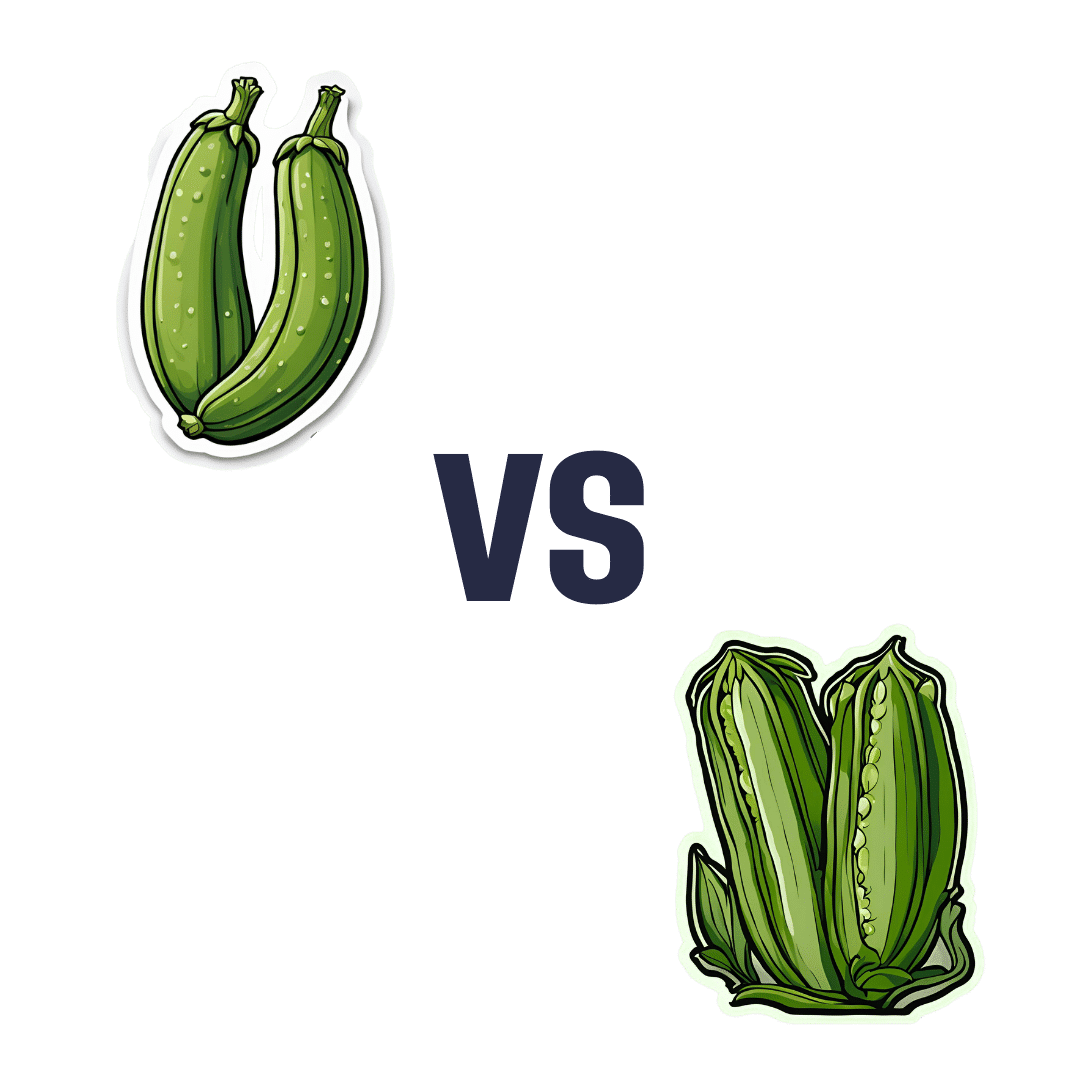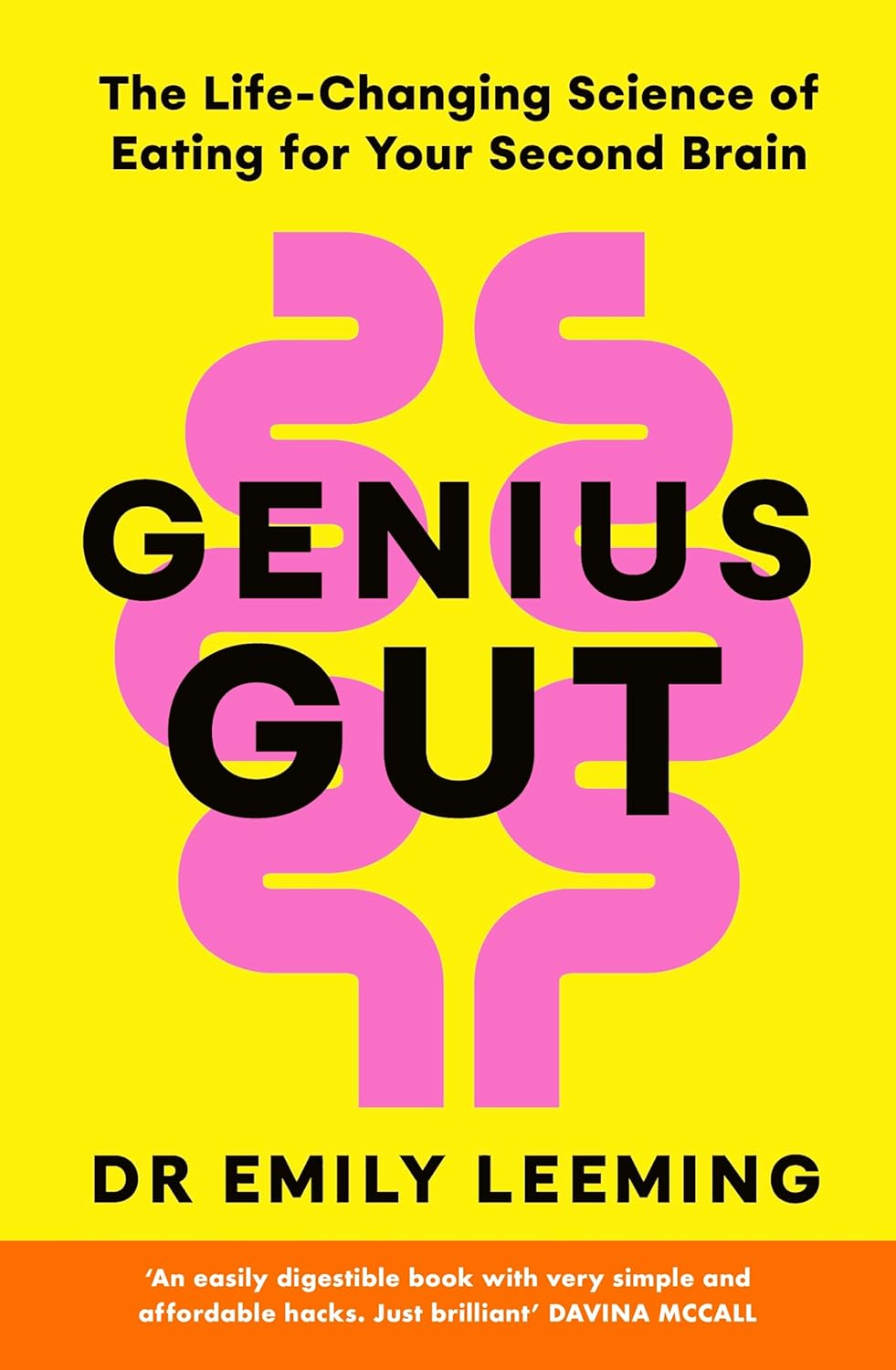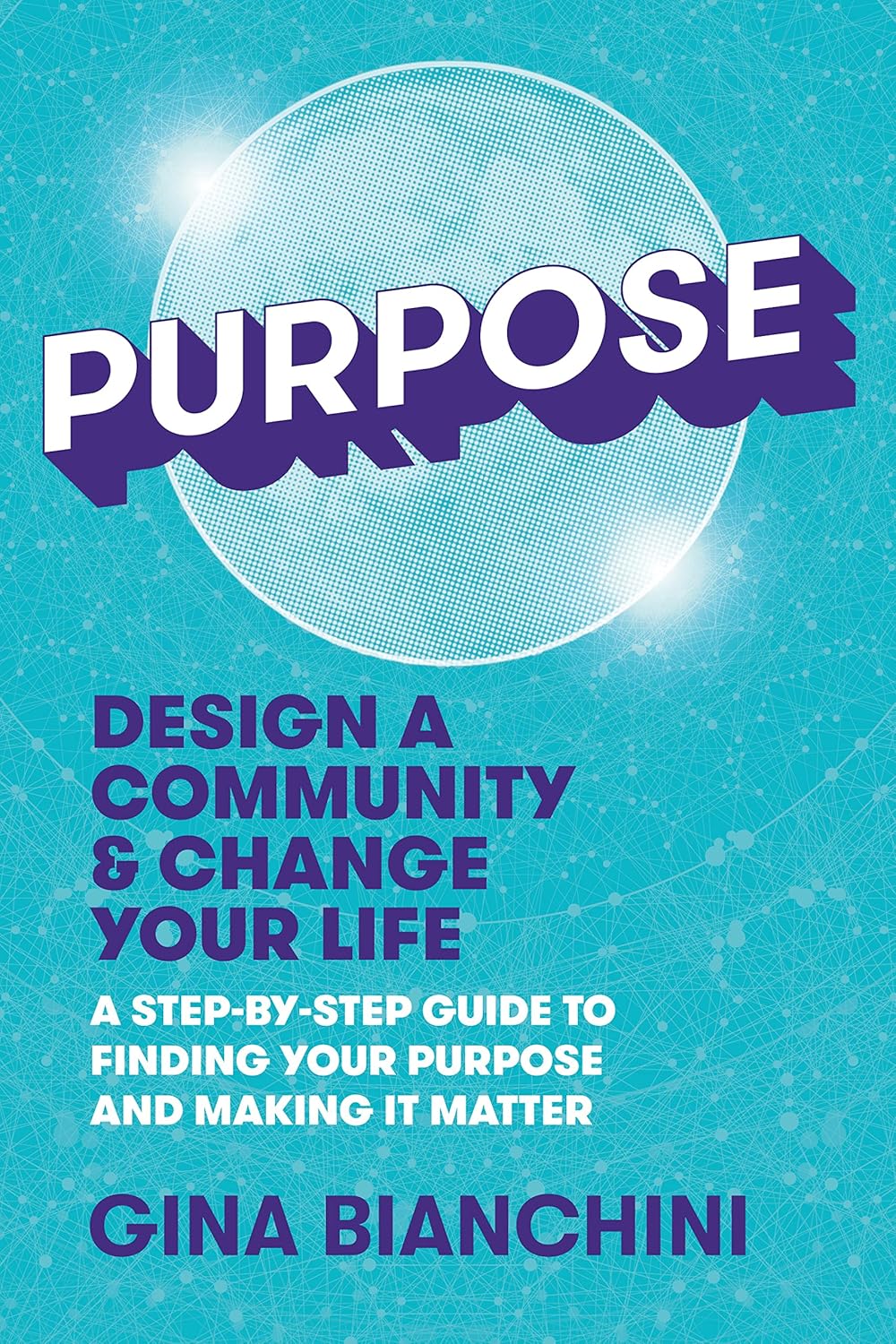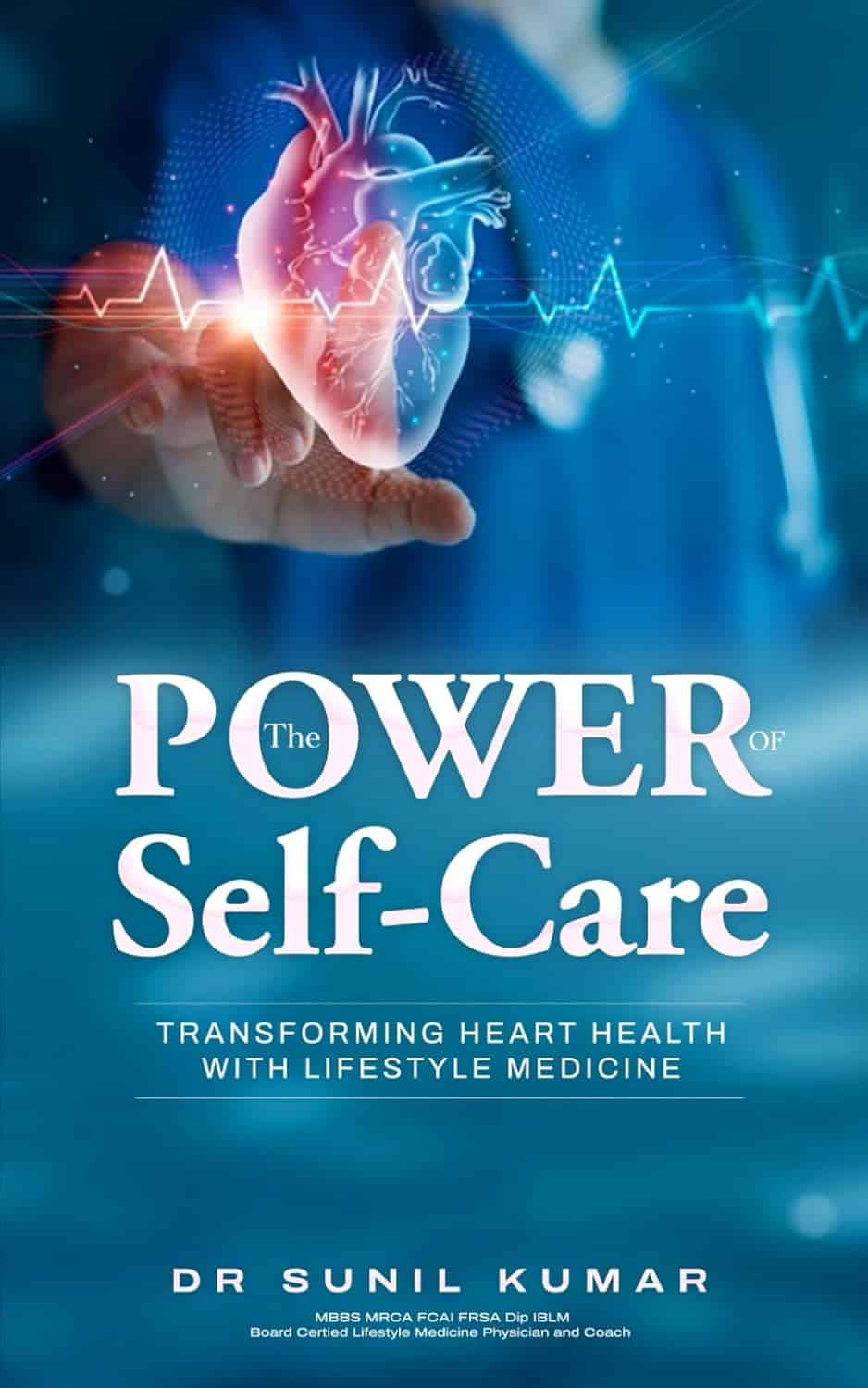
The Power of Self-Care – by Dr. Sunil Kumar
10almonds is reader-supported. We may, at no cost to you, receive a portion of sales if you purchase a product through a link in this article.
First, what this book is mostly not about: bubble baths and scented candles. We say “mostly”, because stress management is an important aspect given worthy treatment in this book, but there is more emphasis on evidence-based interventions and thus Dr. Kumar is readier to prescribe nature walks and meditation, than product-based pampering sessions.
As is made clear in the subtitle “Transforming Heart Health with Lifestyle Medicine”, the focus is on heart health throughout, but as 10almonds readers know, “what’s good for your heart is good for your brain” is a truism that indeed holds true here too.
Dr. Kumar also gives nutritional tweaks to optimize heart health, and includes a selection of heart-healthy recipes, too. And exercise? Yes, customizable exercise plans, even. And a plan for getting sleep into order if perchance it has got a bit out of hand (most people get less sleep than necessary for maintenance of good health), and he even delves into “social prescribing”, that is to say, making sure that one’s social connectedness does not get neglected—without letting it, conversely, take over too much of one’s life (done badly, social connectedness can be a big source of unmanaged stress).
Perhaps the most value of this book comes from its 10-week self-care plan (again, with a focus on heart health), basically taking the reader by the hand for long enough that, after those 10 weeks, habits should be quite well-ingrained.
A strong idea throughout is that the things we take up should be sustainable, because well, a heart is for life, not just for a weekend retreat.
Bottom line: if you’d like to improve your heart health in a way that feels like self-care rather than an undue amount of work, then this is the book for you.
Don’t Forget…
Did you arrive here from our newsletter? Don’t forget to return to the email to continue learning!
Recommended
Learn to Age Gracefully
Join the 98k+ American women taking control of their health & aging with our 100% free (and fun!) daily emails:
-
Calm Your Mind with Food – by Dr. Uma Naidoo
10almonds is reader-supported. We may, at no cost to you, receive a portion of sales if you purchase a product through a link in this article.
From the author of This Is Your Brain On Food, the psychiatrist-chef (literally, she is a Harvard-trained psychiatrist and an award-winning chef) is back with a more specific work, this time aimed squarely at what it says in the title; how to calm your mind with food.
You may be wondering: does this mean comfort-eating? And, well, not in the sense that term’s usually used. There will be eating and comfort will occur, but the process involves an abundance of nutrients, a minimization of health-deleterious ingredients, and a “for every chemical its task” approach. In other words, very much “nutraceuticals”, as our diet.
On which note: as we’ve come to expect from Dr. Naidoo, we see a lot of hard science presented simply and clearly, with neither undue sensationalization nor unnecessary jargon. We learn about the brain, the gut, relevant biology and chemistry, and build up from understanding ingredients to dietary patterns to having a whole meal plan, complete with recipes.
You may further be wondering: how much does it add that we couldn’t get from the previous book? And the answer is, not necessarily a huge amount, especially if you’re fairly comfortable taking ideas and creating your own path forwards using them. If, on the other hand, you’re a little anxious about doing that (as someone perusing this book may well be), then Dr. Naidoo will cheerfully lead you by the hand through what you need to know and do.
Bottom line: if not being compared to her previous book, this is a great standalone book with a lot of very valuable content. However, the previous book is a tough act to follow! So… All in all we’d recommend this more to people who want to indeed “calm your mind with food”, who haven’t read the other book, as this one will be more specialized for you.
Click here to check out Calm Your Mind With Food, and do just that!
Share This Post
-
Thinking, Fast and Slow – by Dr. Daniel Kahneman
10almonds is reader-supported. We may, at no cost to you, receive a portion of sales if you purchase a product through a link in this article.
We all try to make the best decisions we can with the information available… Don’t we?
Yet, somehow, a survival chance of 90% seems better than a mortality rate of 10%, and as it turns out, we as fallible humans are prey to all manner of dubious heuristics.
Nobel Prize winner Dr. Daniel Kahneman lays out for us two sytems of thought process:
- Fast, intuitive, emotional
- Slow, deliberate, logical
He makes the case for how and why we do need both, but often end up using the wrong one. He notes how the first is required for efficiency, or we would spend all day deciding what socks to wear… The second, meanwhile, is required for high-stakes decisions, but is lazy by nature, and often we don’t engage it when we ought to.
Over the course of many diverse examples, Dr. Kahneman shows how again and again, the second system is slowly cogitating at the back of the class, while the first system is bouncing up and down with its hand in the air saying “I know! I know!”, even when, in fact, it does not know.
For a book largely founded in economics (it’s a massive takedown of the notion of the rational consumer), it is not at all dry, and is very readable in style. It’s engaging throughout, and readers far removed from Wall Street will find plenty of ways it relates to our everyday lives.
Bottom line: if you’d like to avoid making many mistakes in what you’d assumed to be rational decisions, this book is critical reading.
Click here to check out “Thinking, Fast And Slow”, and enjoy the results of better decisions!
Share This Post
-
Zucchini vs Okra – Which is Healthier?
10almonds is reader-supported. We may, at no cost to you, receive a portion of sales if you purchase a product through a link in this article.
Our Verdict
When comparing zucchini to okra, we picked the okra.
Why?
Looking at the macros first, okra has nearly 2x the protein and more than 3x the fiber (for about 2x the carbs).
In terms of vitamins, things are also quite one-sided; zucchini has a little more vitamin B2, while okra has a lot more of vitamins A, B1, B3, B5, B6, B9, C, E, K, and choline.
Nor does the mineral situation make any compelling counterargument; zucchini is higher only in sodium, while okra has a lot more calcium, copper, iron, magnesium, manganese, phosphorus, potassium*, selenium, and zinc.
*Actually it’s only a little more potassium. But the rest are with big margins of difference.
Both of these on-the-cusp-of-being-pungent vegetables have beneficial antioxidant polyphenols (especially various forms of quercetin), but okra has more.
In short: enjoy both, of course, but there’s a clear winner here and it’s okra.
Want to learn more?
You might like to read:
Enjoy Bitter/Astringent/Pungent Foods For Your Heart & Brain
Take care!
Share This Post
Related Posts
-
Dogs Paired With Providers at Hospitals Help Ease Staff and Patient Stress
10almonds is reader-supported. We may, at no cost to you, receive a portion of sales if you purchase a product through a link in this article.
DENVER — Outside HCA HealthONE Rose medical center, the snow is flying. Inside, on the third floor, there’s a flurry of activity within the labor and delivery unit.
“There’s a lot of action up here. It can be very stressful at times,” said Kristina Fraser, an OB-GYN in blue scrubs.
Nurses wheel a very pregnant mom past.
“We’re going to bring a baby into this world safely,” Fraser said, “and off we go.”
She said she feels ready in part due to a calming moment she had just a few minutes earlier with some canine colleagues.
A pair of dogs, tails wagging, had come by a nearby nursing station, causing about a dozen medical professionals to melt into a collective puddle of affection. A yellow Lab named Peppi showered Fraser in nuzzles and kisses. “I don’t know if a human baby smells as good as that puppy breath!” Fraser had said as her colleagues laughed.
The dogs aren’t visitors. They work here, too, specifically for the benefit of the staff. “I feel like that dog just walks on and everybody takes a big deep breath and gets down on the ground and has a few moments of just decompressing,” Fraser said. “It’s great. It’s amazing.”
Hospital staffers who work with the dogs say there is virtually no bite risk with the carefully trained Labradors, the preferred breed for this work.
The dogs are kept away from allergic patients and washed regularly to prevent germs from spreading, and people must wash their hands before and after petting them.
Doctors and nurses are facing a growing mental health crisis driven by their experiences at work. They and other health care colleagues face high rates of depression, anxiety, stress, suicidal ideation, and burnout. Nearly half of health workers reported often feeling burned out in 2022, an increase from 2018, according to the Centers for Disease Control and Prevention. And the percentage of health care workers who reported harassment at work more than doubled over that four-year period. Advocates for the presence of dogs in hospitals see the animals as one thing that can help.
That includes Peppi’s handler, Susan Ryan, an emergency medicine physician at Rose.
Ryan said years working as an emergency room doctor left her with symptoms of PTSD. “I just was messed up and I knew it,” said Ryan, who isolated more at home and didn’t want to engage with friends. “I shoved it all in. I think we all do.”
She said doctors and other providers can be good at hiding their struggles, because they have to compartmentalize. “How else can I go from a patient who had a cardiac arrest, deal with the family members telling them that, and go to a room where another person is mad that they’ve had to wait 45 minutes for their ear pain? And I have to flip that switch.”
To cope with her symptoms of post-traumatic stress disorder, Ryan started doing therapy with horses. But she couldn’t have a horse in her backyard, so she got a Labrador.
Ryan received training from a national service dog group called Canine Companions, becoming the first doctor trained by the group to have a facility dog in an emergency room. Canine Companions has graduated more than 8,000 service dogs.
The Rose medical center gave Ryan approval to bring a dog to work during her ER shifts. Ryan’s colleagues said they are delighted that a dog is part of their work life.
“When I have a bad day at work and I come to Rose and Peppi is here, my day’s going to be made better,” EMT Jasmine Richardson said. “And if I have a patient who’s having a tough day, Peppi just knows how to light up the room.”
Nursing supervisor Eric Vaillancourt agreed, calling Peppi “joyful.”
Ryan had another dog, Wynn, working with her during the height of the pandemic. She said she thinks Wynn made a huge difference. “It saved people,” she said. “We had new nurses that had never seen death before, and now they’re seeing a covid death. And we were worried sick we were dying.”
She said her hospital system has lost a couple of physicians to suicide in the past two years, which HCA confirmed to KFF Health News and NPR. Ryan hopes the canine connection can help with trauma. “Anything that brings you back to the present time helps ground you again. A dog can be that calming influence,” she said. “You can get down on the ground, pet them, and you just get calm.”
Ryan said research has shown the advantages. For example, one review of dozens of original studies on human-animal interactions found benefits for a variety of conditions including behavioral and mood issues and physical symptoms of stress.
Rose’s president and CEO, Casey Guber, became such a believer in the canine connection he got his own trained dog to bring to the hospital, a black Lab-retriever mix named Ralphie.
She wears a badge: Chief Dog Officer.
Guber said she’s a big morale booster. “Phenomenal,” he said. “It is not uncommon to see a surgeon coming down to our administration office and rolling on the ground with Ralphie, or one of our nurses taking Ralphie out for a walk in the park.”
This article is from a partnership that includes CPR News, NPR, and KFF Health News.
KFF Health News is a national newsroom that produces in-depth journalism about health issues and is one of the core operating programs at KFF—an independent source of health policy research, polling, and journalism. Learn more about KFF.
Subscribe to KFF Health News’ free Morning Briefing.
This article first appeared on KFF Health News and is republished here under a Creative Commons license.
Don’t Forget…
Did you arrive here from our newsletter? Don’t forget to return to the email to continue learning!
Learn to Age Gracefully
Join the 98k+ American women taking control of their health & aging with our 100% free (and fun!) daily emails:
-
Genius Gut – by Dr. Emily Leeming
10almonds is reader-supported. We may, at no cost to you, receive a portion of sales if you purchase a product through a link in this article.
When it comes to the gut-brain information interchange, 90% of it is the gut talking to the brain (the brain is a good listener). As such, one of the best things we can do for our brain is ensure our gut has good things to say.
Dr. Leeming talks us through doing a quick initial assessment to judge the general goodness/badness of our current gut situation (based on output, not input, so it’s about the actual goodness/badness, not what we expect it should be), before going on to explain a lot of the anatomy and physiology at hand.
The hacks themselves may be, in their titles, things you already know—but where the real value of this book lies is in all the data and science collated under each of those hacks, allowing the reader to optimize everything rather than just guessing. Which can mean optimize by doing things as close to perfectly as possible, or it can mean optimize by doing/using the things that get the best results for the minimum effort. It’s up to you!
The style is very casual and friendly, even conversational, while not skimping on science (and indeed, citations are frequently provided for such).
Bottom line: if you’d like to improve your gut health, especially with the goal of improving your brain health, this is an excellent book for that.
Click here to check out Genius Gut, and make yours better for you!
Don’t Forget…
Did you arrive here from our newsletter? Don’t forget to return to the email to continue learning!
Learn to Age Gracefully
Join the 98k+ American women taking control of their health & aging with our 100% free (and fun!) daily emails:
-
Purpose – by Gina Bianchini
10almonds is reader-supported. We may, at no cost to you, receive a portion of sales if you purchase a product through a link in this article.
To address the elephant in the room, this is not a rehash of Rick Warren’s best-selling “The Purpose-Driven Life”. Instead, this book is (in this reviewer’s opinion) a lot better. It’s a lot more comprehensive, and it doesn’t assume that what’s most important to the author will be what’s most important to you.
What’s it about, then? It’s about giving your passion (whatever it may be) the tools to have an enduring impact on the world. It recommends doing this by leveraging a technology that would once have been considered magic: social media.
Far from “grow your brand” business books, this one looks at what really matters the most to you. Nobody will look back on your life and say “what a profitable second quarter that was in such-a-year”. But if you do your thing well, people will look back and say:
- “he was a pillar of the community”
- “she raised that community around her”
- “they did so much for us”
- “finding my place in that community changed my life”
- …and so forth. Isn’t that something worth doing?
Bianchini takes the position of both “idealistic dreamer” and “realistic worker”.
Further, she blends the two beautifully, to give practical step-by-step instructions on how to give life to the community that you build.
Don’t Forget…
Did you arrive here from our newsletter? Don’t forget to return to the email to continue learning!
Learn to Age Gracefully
Join the 98k+ American women taking control of their health & aging with our 100% free (and fun!) daily emails:

